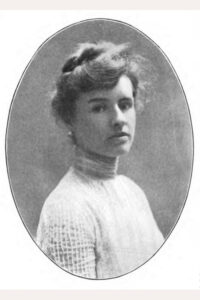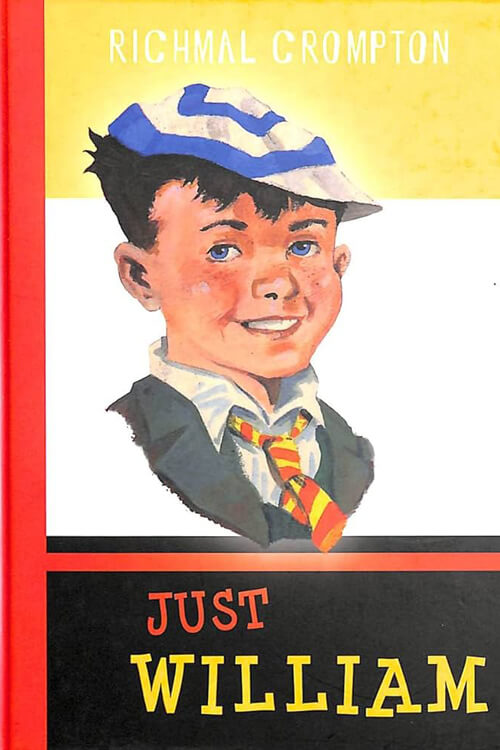
Dear Enemy
Dear Enemy is the 1915 sequel to Jean Webster’s 1912 novel Daddy-Long-Legs. It was among the top 10 best sellers in the U.S. in 1916. The story is presented in a series of letters written by Sallie McBride, Judy Abbott’s classmate and best friend in Daddy-Long-Legs. Among the recipients of the letters are Judy; Jervis Pendleton, Judy’s husband and the president of the orphanage where Sallie is filling in until a new superintendent can be installed; Gordon Hallock, a wealthy Congressman, and Sallie’s later fiancé; and the orphanage’s doctor, embittered Scotsman Robin ‘Sandy’ MacRae (to whom Sallie addresses her letters: “Dear Enemy”).
Webster employs the epistolary structure to good effect; Sallie’s choices of what to recount to each of her correspondents reveal much about her relationships with them. The novel is set in rural Dutchess County, New York, early in the 20th century. It examines several social issues: how to care for orphans (and for children in general), divorce, and the value of women’s work. (The latter is a natural extension of the theme of women’s education in Daddy-Long-Legs.) While volunteer work by women is widely accepted, women working in responsible positions for pay is still viewed with some hostility by some characters, such as Gordon Hallock, Sallie’s friend and later fiancé, and the Honorable Cyrus Wykoff, a trustee of the John Grier Home. The Hon. Cy (as Sallie calls him) objects to the JGH paying a salary to Betsy, Sallie’s assistant: “She’s a woman, and her family ought to support her.” Though the Hon. Cy makes it clear that he thinks Sallie is frivolous and unsuited to superintend an orphanage, Sallie is so devoted to the orphans’ well-being that she turns even her social life—explicitly criticized by the Hon. Cy—into an opportunity to further her cause, recruiting volunteers, benefactors, and foster parents at dinner parties and afternoon teas. Webster also deals with women’s life choices more subtly.
She contrasts the miserable marriage of Sallie’s friend Helen with Sallie’s fruitful life as she devotes herself to the demanding and strenuous task of running an orphanage. Sallie considers Judy Abbott, who married soon after completing college, an anomaly for her remarkably successful marriage with Jervis. Divorced from her unsuitable husband, Helen ultimately finds happiness in joining Sallie’s cause at the orphanage, applying herself to work for the public good. Socialism used for charitable causes is an underlying theme; the John Grier Home couldn’t survive without the goodwill of the trustees and community. The novel also deals with the evolving ideas about how best to care for orphans at the turn of the century, with the institution-style establishments falling out of favour in light of the modern ‘cottage’ approach. Care for the children’s emotional and spiritual needs is paramount as Sallie works with Dr. MacRae, Judy, and Jervis to enact her reforms. The reasons these are necessary at the John Grier Home are clearly outlined in the first novel, in Judy’s miserable recollections of her old home. Concerns with the hereditary origins of ‘feeble-mindedness’ and alcoholism are expressed by Dr MacRae and by Sallie. The doctor’s anxieties prove to have an underlying basis in his experience, which is revealed towards the end of the novel. Although the themes are intense, the author generally deals with them in an amusing and light-hearted fashion.
Read or download Book
Jean Webster
Jean Webster was the pen name of Alice Jane Chandler Webster (July 24, 1876 – June 11, 1916), an American author whose books include Daddy-Long-Legs and Dear Enemy.
Biography
Her best-known books feature lively and likable young female protagonists who come of age intellectually, morally, and socially, but with enough humor, snappy dialogue, and gently biting social commentary to make her books palatable and enjoyable to contemporary readers. In Fredonia, Webster began writing When Patty Went to College, describing contemporary women’s college life. After some struggles finding a publisher, it was issued in March 1903 with good reviews.
Webster started writing the short stories that would make up Much Ado about Peter, and with her mother, visited Italy for the winter of 1903–1904, including a six-week stay in a convent in Palestrina, while she wrote the Wheat Princess. It was published in 1905. The following years brought a further trip to Italy and an eight-month world tour to Egypt, India, Burma, Sri Lanka, Indonesia, Hong Kong, China, and Japan with Ethelyn McKinney, Lena Weinstein, and two others, as well as the publication of Jerry Junior (1907) and The Four Pools Mystery (1908). Jean Webster began an affair with Ethelyn McKinney’s brother, Glenn Ford McKinney. A lawyer, he had struggled to live up to the expectations of his wealthy and successful father. Mirroring a subplot of Dear Enemy, he had an unhappy marriage due to his wife’s struggling with mental illness; McKinney’s wife, Annette Reynaud, frequently was hospitalized for manic-depressive episodes.
The McKinneys’ child, John, also showed signs of mental instability. McKinney responded to these stresses with frequent escapes on hunting and yachting trips as well as alcohol abuse; he entered sanatoriums on several occasions as a result. The McKinneys separated in 1909, but in an era when divorce was uncommon and difficult to obtain, they were not divorced until 1915. After his separation, McKinney continued to struggle with alcoholism but had his addiction under control in the summer of 1912 when he travelled with Webster, Ethelyn McKinney, and Lena Weinstein to Ireland.
During this period, Webster continued to write short stories and began adapting some of her books for the stage. In 1911, Just Patty was published, and Webster started to write the novel Daddy-Long-Legs while staying at an old farmhouse in Tyringham, Massachusetts. Webster’s most famous work was initially published as a serial in the Ladies Home Journal and tells the story of a girl named Jerusha Abbott, an orphan whose attendance at a women’s college is sponsored by an anonymous benefactor. Apart from an introductory chapter, the novel takes the form of letters written by the newly styled Judy to her benefactor. It was published in October 1912 to widespread and critical acclaim.






